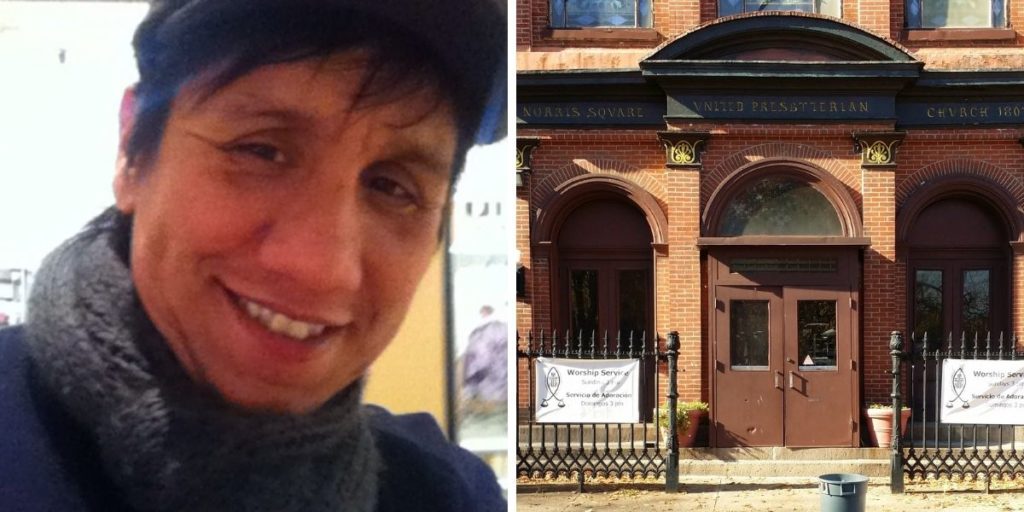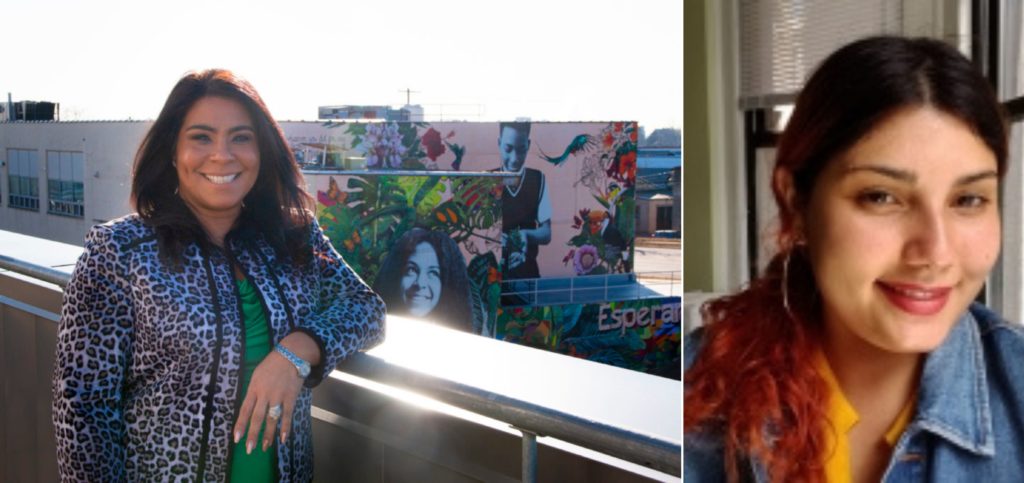Tech used for public safety elicits mixed emotions in Norris Square and beyond
 September 28, 2020
Category: Featured, Long, Purpose
September 28, 2020
Category: Featured, Long, Purpose
As gun violence continues to escalate throughout Philadelphia, the issue of public safety is becoming more and more of a concern to the city’s residents. It’s challenging for some to even feel safe enough to venture out of their own homes, especially as the number of homicides in the city continues to climb with no clear solution to stop its ascent.
But what can be done? There are some neighborhoods throughout Philadelphia where different types of technology have been introduced in order to deter crime, such as security cameras, police cameras, and even ring cameras — each with varying forms of success and failure.
For the most part, Rev. Adán Mairena is a cautious when the use of surveillance cameras, even drones, come into the discussion of public safety, because of the issues surrounding privacy.
“Assist who in public safety? Who’s going to be responsible for monitoring that? I think the community would have to get together and talk about what that means,” Mairena said.

Rev. Adán Mairena is the pastor of West Kensington Ministries in the Norris Square neighborhood of Philadelphia. (Photo of Mairena from LinkedIn; photo of West Kensington Ministries by Sabrina Vourvoulias)
“There’s an issue with privacy, you have to balance privacy with safety and who has access to it,” he added. “For example, as a pastor of a church, I would even, before even doing it I would talk with my neighbors and see how they feel about it.”
Mairena is the pastor of West Kensington Ministries and has resided in his Norris Square community for over 15 years. He’s a well-known figure in the community and as the pandemic continues, has led food distribution in the area feeding thousands of people. He also leads the Friends of Norris Square, a group of neighbors that gather to support, clean, and create community engagement in and around Norris Square Park.
This section of Philadelphia is gentrifying, but is 32% Latinx, mostly Puerto Rican. Mairena says Norris Square Park is considered by some to be the heart of Philadelphia’s Latinx community.
“You know, I would like to learn from other cities that have done this and what their experiences have been [with public safety tech]. Especially during these times, we have a very vulnerable, sensitive climate,” Mairena said. “I think if the police or even when we think about the words law enforcement, that’s already an odd way to describe police. Law enforcement is different from protecting and serving. I think the use of cameras would definitely require a lot of community engagement, a lot of education, a lot of transparency, and I honestly don’t think right now is the time to do that because both sides are so entrenched where they are.”
"I think a lot of community members would laugh if you go to them and say, 'hey, the cops want to put cameras up here.'"
There are also legal issues to consider, Mairena added, like what could be used against a person even if they have no knowledge that they are being filmed.
Cameras are already in place throughout Philadelphia and according to NBC in an article published in 2018, the City had a budget in place to add more every year, but no budget to add adequate camera maintenance.
The 550 cameras are taxpayer-owned, including 428 police surveillance cameras.
“I think a lot of community members would laugh if you go to them and say, ‘hey, the cops want to put cameras up here,’” Mairena said.
“On the one hand, it’s like ‘put them up,’ that way when the police do come then we could see the way the police treat community members — which most of them treat us fine, but you always have the feeling of what could happen. It’s just how do you get there and if the community wants it.”
Mairena added that his North Square community has a pretty good relationship with the 26th Police District around the parks and adjacent blocks. The officers, he said, are seen more often than not.
“When they [the police] do community policing, one of the concerns that I have is that every captain, or whoever is in charge, has a different philosophy of how to police, and it probably has a lot to do with the budget,” Mairena said. “With community policing, you have the police walking around building relationships, building trust, and walking around the same neighborhood — so that we know who the police are, as opposed to them just driving around.”
Cesali Morales moved to Norris Square in 2016 after leaving Oakland, CA. Rent increases there and a lack of affordable housing left it nearly impossible to secure a place to live. Morales chose Norris Square because it was close to her family and had a large Puerto Rican community.
Surrounding the Norris Square Neighborhood Project (NSNP) — of which Morales is a board member — are a variety of local institutions that are also working to meet resident needs in Norris Square and Kensington.
"Until we create systems of care that serve the most vulnerable in our communities, safety will not exist."
“In order to talk about public safety, we ultimately need to address the harms experienced here in Norris Square; harms that are largely due to racist and unequal structures that conspire to keep residents in a constant state of struggle,” Morales said. “Healthcare, crime and punishment, immigration, fresh food, housing — look into any one of these systems, and we see a disproportionate and often negative effect on the Norris Square community, as they are built upon racial bias and the perpetuation of economic inequity.”
“Until we create systems of care that serve the most vulnerable in our communities,” she said, “safety will not exist.”
Addressing the root causes of trauma and injustice is key in building safe futures, Morales added. Of significant concern for NSNP is the protection of residents from gentrification.
“As both a board member and resident, I know this is a particularly challenging moment for my neighbors and me. This pandemic has made it difficult for folx to pay their rent, mortgages, and secure housing,” Morales said. “Another important aspect of public safety is language, and the inclusion of folx who speak other languages to get them the information they need to be safe.”

Left: Quetcy Lozada, a staff member of Esperanza; right: Cesali Morales, a board member of Norris Square Neighborhood Project. (Courtesy photos)
From a citywide standpoint, Quetcy Lozada, VP of community organizing and engagement at Esperanza, in the Hunting Park section of Philadelphia, said that the use of either drones or cameras could be helpful in the organization’s neighborhood. As long as the appropriate precautions are put into place.
"Drones and surveillance cameras can be an innovative resource to public safety as long as the community is aware of how to alert the system when help is needed."
In some districts, Lozada added, specifically in the East Division, the districts really try to engage residents one on one. Huge strides have been made building up those relationships .yet there is still much work to be done.
“Drones and surveillance cameras can be an innovative resource to public safety as long as the community is aware of how to alert the system when help is needed,” Lozada said.
If used in Philadelphia, Lozada thinks that the use of the technology could both build better relations between the community and law enforcement. While video footage may not always describe the full narrative in every situation, Lozada added that it both could support the police department and community in solving crimes.
“There is a lot of noise around public safety and there are many who really want to do more across the city, but sometimes bureaucracy gets in the way,” Lozada said.
“We all recently witnessed communities of color, and many others of many backgrounds, come together demanding change,” she said. “They want more opportunities for dialogue with each other and with police.”
Project
Technology in CommunityTrending News









